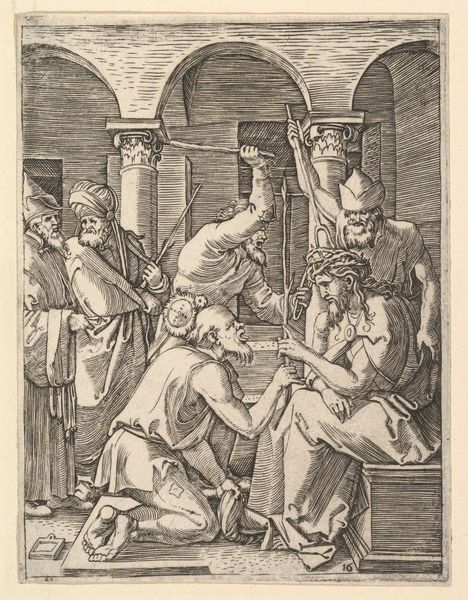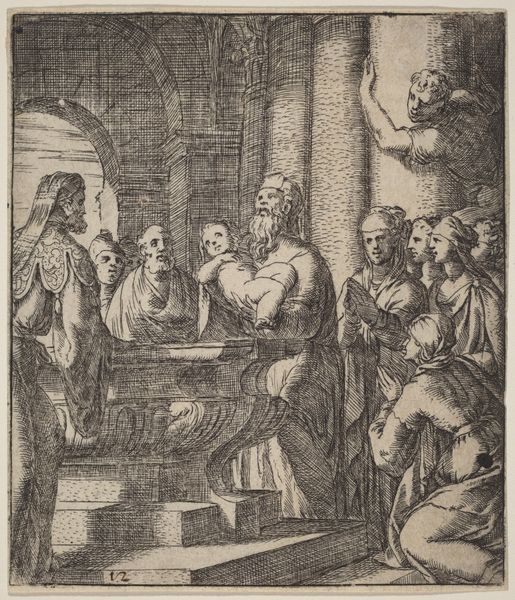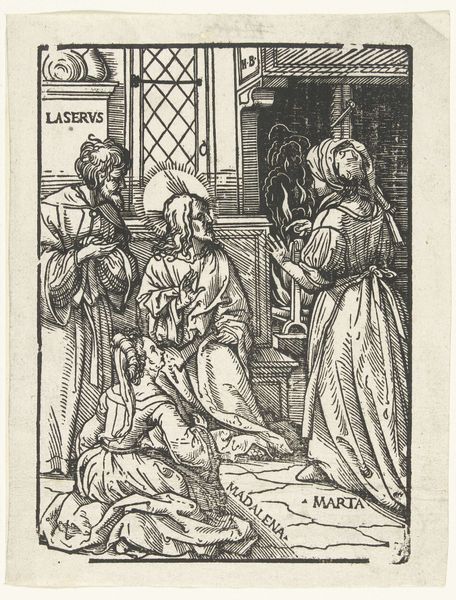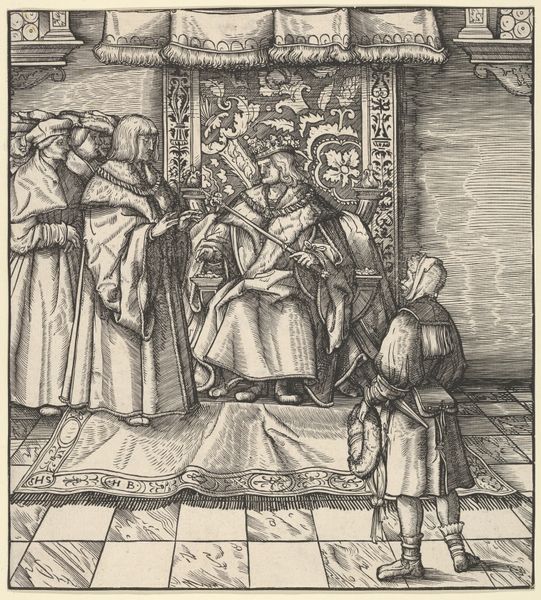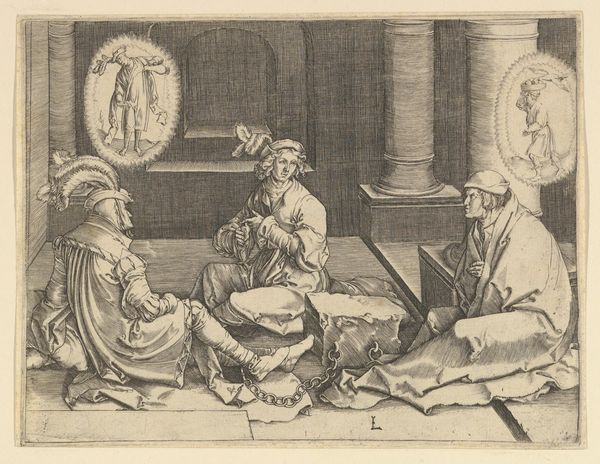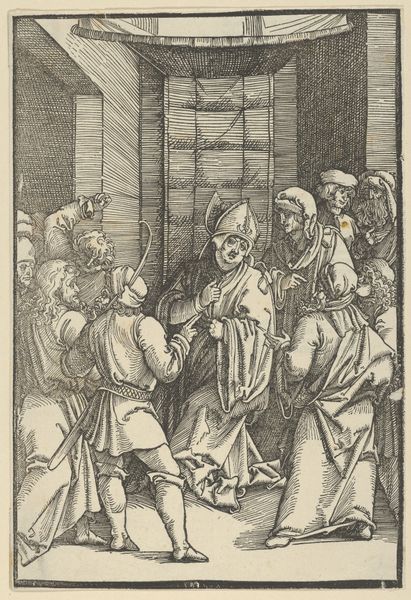
Solomon Adoring the Idols, from Women's Wile (Weiberlisten) 1498 - 1531
0:00
0:00
drawing, print, woodcut
#
drawing
#
allegory
# print
#
figuration
#
woodcut
#
northern-renaissance
Dimensions: Sheet: 4 5/8 × 3 11/16 in. (11.8 × 9.3 cm)
Copyright: Public Domain
Editor: We're looking at Hans Burgkmair’s woodcut, “Solomon Adoring the Idols,” created sometime between 1498 and 1531. It feels like a stage play condensed into a single image. I'm curious – what catches your eye most in this print? Curator: Well, firstly, the sheer visual storytelling on display. It's as if Burgkmair is not just depicting a moment, but a moral reckoning. I keep wondering, does Solomon look weary to you? Or merely lovelorn? Perhaps both? The weight of that choice he is making! Burgkmair, I think, captures the seduction and the consequence in the tilt of Solomon’s head and the shadows etching his face. It’s not just about the adoration, is it? It's about the price of it. Don't you agree? Editor: Definitely, it's hard to ignore the sense of impending doom. I was just curious, what is Burgkmair trying to suggest by positioning the idols at a distance, almost like spectators? Curator: I think the placement gives them an air of inevitability, almost as though this event and downfall of Solomon was simply supposed to happen. They aren't interactive, are they? They just *are*. The "Women's Wiles" series highlights women and temptation. It makes you wonder how Burgkmair viewed agency and blame, doesn’t it? What do *you* take away from that? Editor: I never thought about that! It gives you pause about the traditional interpretation of the biblical tale. Curator: It certainly does. This work goes beyond illustrating a Bible passage; it encourages a deeper, maybe slightly uncomfortable reflection. Burgkmair forces you to confront the idea that historical figures aren't immune to complex human foibles. It’s not always just black and white, good and evil. Editor: Looking at it now, I think I see that it reflects on our own moral compasses in our own time, too. Curator: Exactly! Now, there’s a wise observation.
Comments
No comments
Be the first to comment and join the conversation on the ultimate creative platform.


